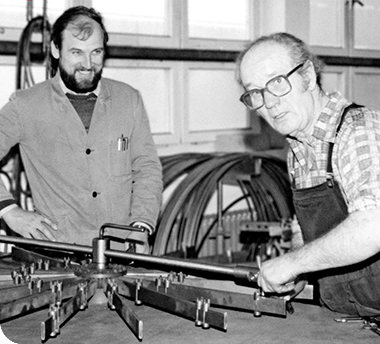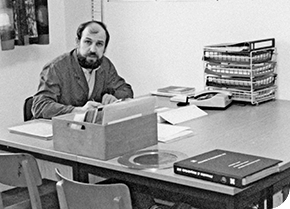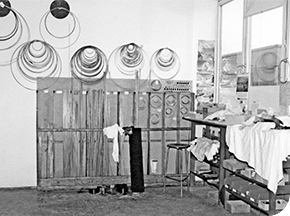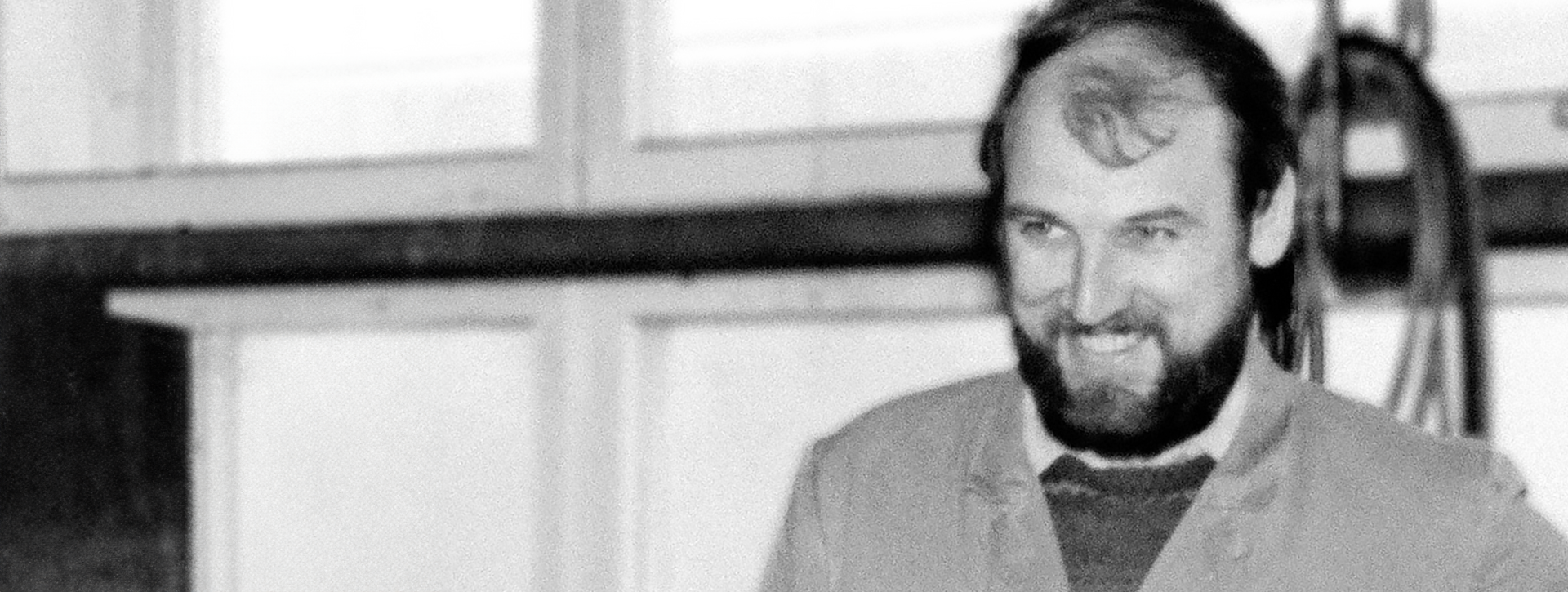
The "Ringmaster" in action: The "Ringmaster" in action: Dieter Ulmer (left) with employee Stefan Kaufmann in his early days at Franke.
When Dieter Ulmer started at Franke, the company had just under 50 employees; when he retired, there were around 200. He experienced and shaped the rise from a workshop characterised by craftsmanship to a state-of-the-art industrial company like hardly anyone else.
The connection with Franke began on a Sunday for the trained machine fitter Dieter Ulmer. As Egon Franke was only free on this day, he welcomed him for an interview. When the then 24-year-old started at Franke a little later in May 1969, he initially felt like an apprentice. After spending four years with the mountain infantry in the Bundeswehr (armed forces of the Republic of Germany), he was a little rusty. What's more, the wire race production area in which he was working was a specialised field and completely new territory for him. However, he found a gifted teacher in the first ever Franke employee Fritz Meier. "I learnt so much from him," Dieter Ulmer still remembers today, "it was amazing."
He also quickly learnt to improvise. He practically had to set up his first workplace himself, for which he "scrambled together" a few of the necessary tools. Personal initiative and inventiveness were in demand already as most of the tools and equipment for wire ring production were developed and manufactured in-house. Working on a Saturday was also normal, as was the lovely gesture by senior manager Anna Franke, Erich Franke's widow, of walking through the factory with a food basket for the employees. For Dieter Ulmer, the managers' collegiality and open ear to suggestions from the workforce were unrivalled: "There were never any decisions made from above that were not okay."
He attended the master craftsman school in Heidenheim while working – initially without the company's knowledge. Only when he refused to work on Saturdays, to the astonishment of his superiors, and when Egon Franke asked him why, did they realise that he was attending a master craftsman's course on Saturdays.
In 1973, the newly qualified master craftsman Dieter Ulmer was put in charge of race ring production, a position he held until his retirement in 2005. The "Ringmaster" helped to shape many changes during this time, from the start of CNC-controlled production to the introduction of "Flüsterlager" bearings for computer tomographs and the first employment of women in production at Franke. For him, however, Franke's most important success factor was its customer focus. He claimed that even for very specialised applications, you can find a solution that usually fits. "Otherwise," Dieter Ulmer is convinced, "Franke would not have become so big." //

As foreman of wire ring production, Dieter Ulmer was the boss of 40 employees at times.

Dieter Ulmer still had to set up his first workshop largely by himself. He later accompanied the transition to ultra-modern manufacturing processes.


